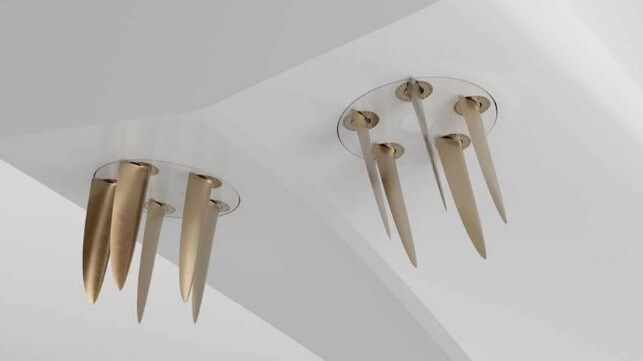ABB Presents New Propulsion Concept to Improve Operating Efficiency

Engineers from ABB, long known for its power systems, unveiled a new propulsion concept that they report can significantly increase ship efficiency and contribute to the effort to reduce emissions. The system replaces the traditional shaft and propeller with an electric-powered wheel with a series of blades to create the propulsive force. Called Dynafin, the company estimates the first prototype will be available in 2025 saying it will enable new, more efficient vessel designs.
ABB said during the presentation introducing the new concept that it has been in development and testing for over a decade. Inspired by the dynamic motions of a whale’s tail, the approach builds on gearless power transmissions, a proven design philosophy for marine propulsion.
“This solution is all about operational efficiency and emissions avoidance, said Juha Koskela, Division President, ABB Marine & Ports. “ABB Dynafin shows what is possible when marine engineers pursue radical innovation and progress, inspired by the interplay of evolution and technology.”
The new propulsion concept features a main electric motor that powers a large wheel rotating at a moderate 30-80 rounds per minute. Vertical blades, each controlled by an individual motor and control system, extend from the wheel. The combined motion of the wheel and blades generates propulsion and steering forces simultaneously, enabling increases in operational efficiency and precision for ships.
An independent study conducted by OSK-ShipTech verified savings in propulsion energy consumption of up to 22 percent compared to a conventional shaftline configuration on a passenger vessel and versus other propulsion solutions.
Initially available in the power range of 1–4 MW per unit, the new propulsion concept ABB reports will be effective for medium-sized and smaller vessels, including passenger and vehicle ferries, offshore support vessels operating at wind farms, and yachts.

that matters most
Get the latest maritime news delivered to your inbox daily.
By reducing vibrations and noise levels, the system also improves passenger and crew comfort. In addition, the propulsion concept ABB reports delivers superior maneuverability, and positioning performance, i.e., the capacity of the vessel to maintain the desired position and heading.
As part of an electric propulsion power system, the concept is also fully compatible with zero-emission battery and fuel cell technologies. ABB believes the system can play an important part in the industry’s goal of cutting annual greenhouse gas emissions by at least 50 percent by 2050.
